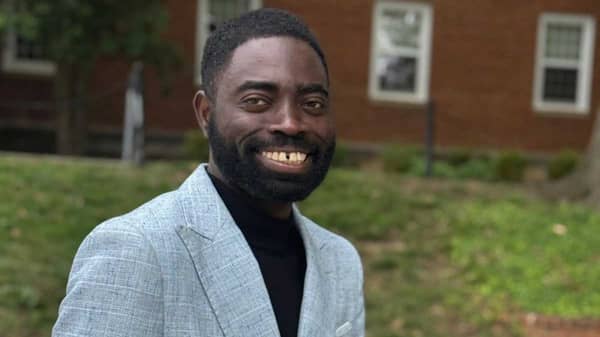In a world grappling with increasingly complex national security challenges, the importance of advanced surveillance and data analysis cannot be overstated. For Nigeria, where border management remains a persistent vulnerability, geospatial artificial intelligence (GeoAI) may be the solution long overdue.
GeoAI, a fusion of satellite imagery, machine learning, and geographic information systems (GIS), offers the capacity to monitor and secure vast and difficult terrain in real time. Frank Alamoh, a seasoned GIS analyst and M.Sc. Geosciences candidate at Georgia State University, says Nigeria is in urgent need of such innovation. “With GeoAI, we can map, analyse and predict threats faster than humanly possible. This isn’t science fiction; it’s science in action,” he explains.
Alamoh, who has worked extensively on spatial data analytics across both Nigeria and the United States, argues that GeoAI holds transformative potential for law enforcement and military operations. “Nigeria’s borders span thousands of kilometres, often in remote or forested areas. Manual patrol is inefficient. But with satellite-powered GeoAI, we can detect movement, illegal crossings, and infrastructure vulnerabilities with high precision,” he says.
A major advantage of GeoAI lies in its ability to integrate various data sources—visual, thermal, and radar imagery—while continuously learning from new patterns. This adaptability means that border threats such as smuggling, human trafficking, and terrorism can be anticipated and addressed before escalation.
Beyond border patrol, GeoAI can support the protection of critical infrastructure like power stations, dams, and pipelines. Alamoh notes, “Critical assets are the lifeline of our economy and public safety. Yet we often rely on outdated surveillance. GeoAI offers a dynamic, proactive approach to safeguarding them.”
With prior experience leading environmental justice mapping projects and mentoring students in geospatial applications, Alamoh emphasises capacity building as key. “Technology without trained personnel is like a plane without a pilot. Nigeria needs to invest in developing a new cadre of GeoAI professionals,” he adds.
Indeed, Alamoh’s own academic path rooted in a B.Tech. in Geography from Nigeria’s FUTMinna and sharpened through research assistantships and technical conferences has highlighted the power of geospatial science to address pressing national issues.
In the United States, he has collaborated on projects using GIS to analyse mental health disparities and urban environmental risks. His insight into multi-layered spatial problems strengthens his argument for applying similar tools to Nigeria’s border and infrastructure security.
“It’s not just about watching borders. GeoAI helps us understand terrain, track seasonal migration, monitor environmental degradation, and build a smarter response system,” Alamoh says. His work underscores how environmental patterns and national security are more closely linked than often assumed.
However, he cautions that adopting such technology requires political will, sustainable investment, and strong data governance policies. “We must build frameworks that ensure privacy, accountability, and inter-agency collaboration. Otherwise, we risk misusing a very powerful tool,” he warns.
He also believes that partnerships between government and universities can fast-track innovation. “Nigeria’s institutions have the brains and potential. With access to training, software, and mentorship, students and professionals can lead a GeoAI revolution,” Alamoh asserts.
GeoAI is already being piloted in border surveillance in parts of the U.S., India, and China. Nigeria could benefit by studying and adapting best practices to suit local conditions. According to Alamoh, local innovation should be encouraged, especially with open-source tools like QGIS and machine learning libraries now accessible to many.
“GeoAI is not a foreign idea. It’s something our youth can master and deploy with the right support,” he says. He calls for inclusion of GeoAI in university curriculums and national tech initiatives to ensure Nigeria doesn’t miss out on the next frontier in security technology.
In an age where threats are increasingly invisible ranging from cyber intrusions to transnational crime the ability to visualise and act upon real-time data is critical. As Alamoh puts it, “To protect what we value, we must see clearly. And GeoAI helps us do just that.”






